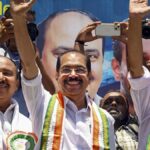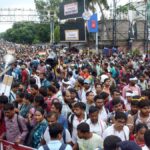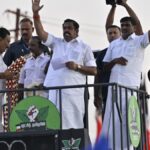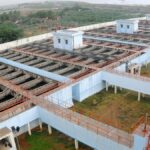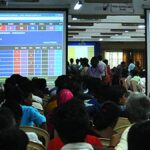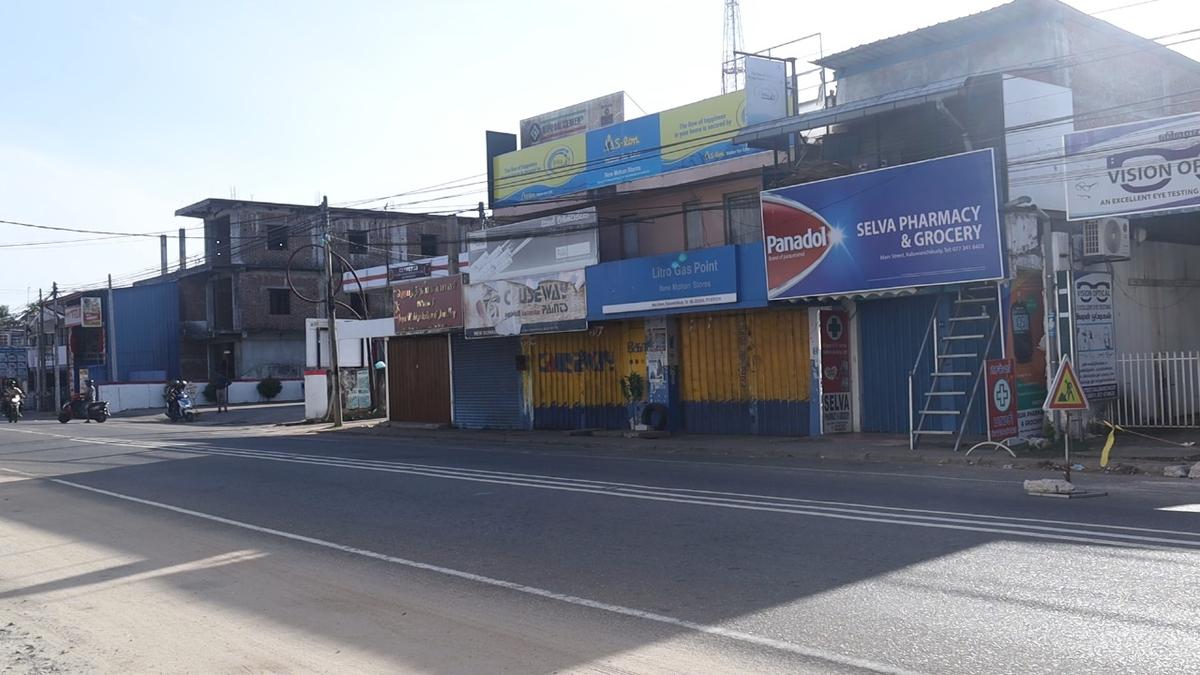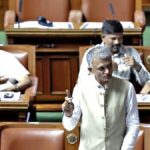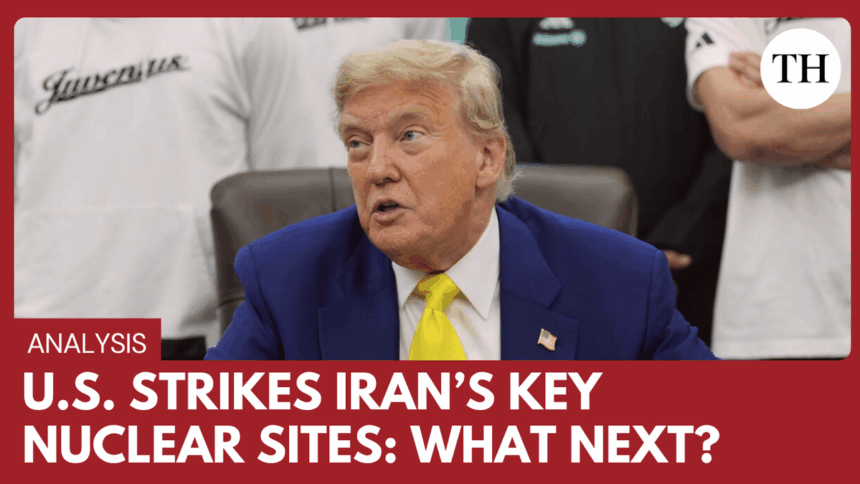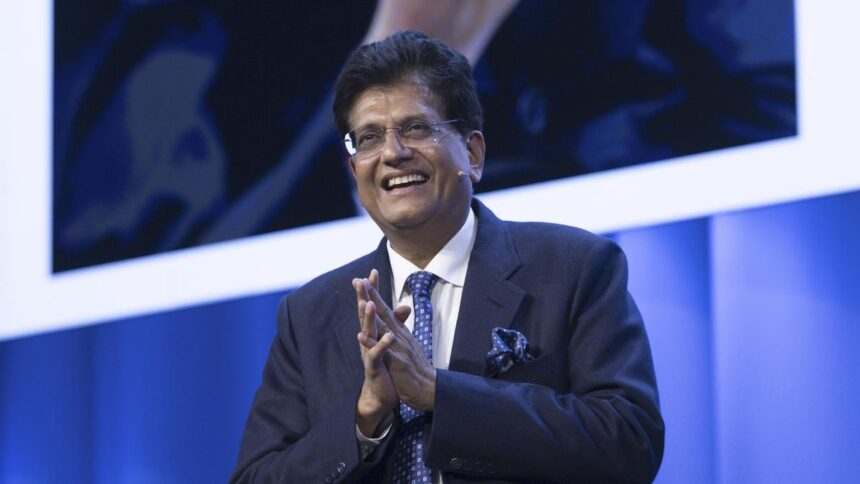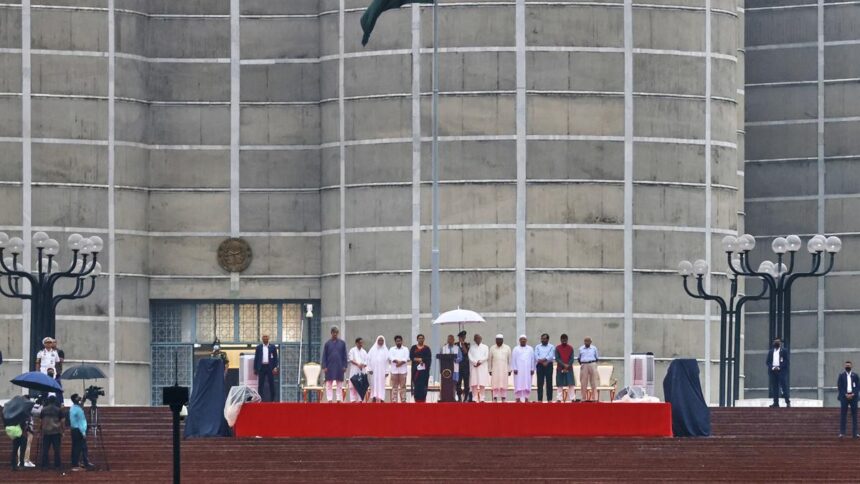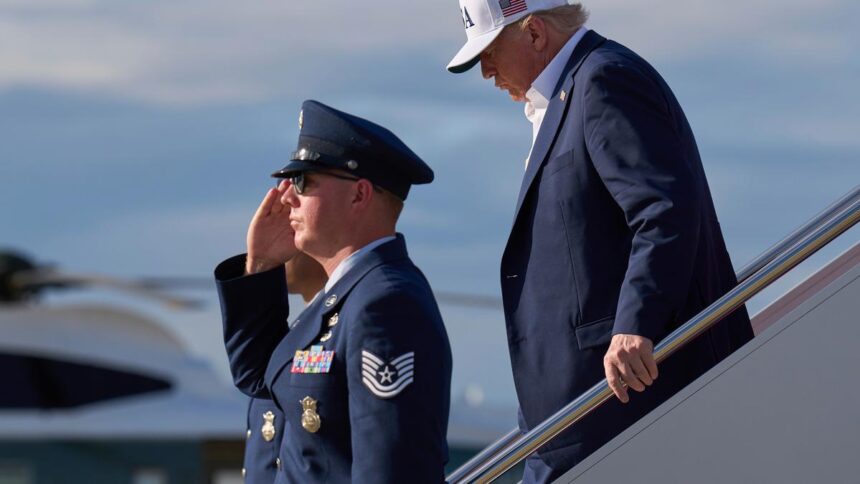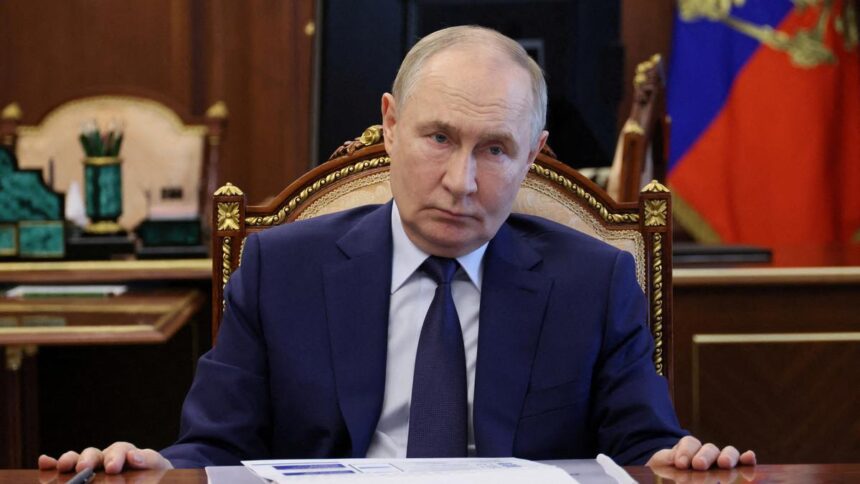A symbolic hartal was observed on Monday [August 18, 2025] across Sri Lanka’s north and east, where a majority of the island’s Tamil-speaking people live, against militarisation that continues 16 years after the civil war ended.
Many commercial and trading establishments in the Northern Province and Eastern Province remained closed during the morning hours, protesting the recent killing of 32-year-old Ethirmanasingham Kapilraj of Mullaitivu district, allegedly by military men. Sri Lanka police arrested three soldiers in connection with the incident last week.
Soon after, prominent Tamil party Ilankai Tamil Arasu Kadchi (ITAK) called for a hartal and wrote to President Anura Kumara Dissanayake, demanding an “unhindered, thorough investigation” and justice for Mr. Kapilraj’s death. In the letter dated August 10, 2025, the party also sought to highlight the “oppressive conduct and excessive presence of the military” in the north and east.
Addressing a media conference on the eve of the hartal, Cabinet Spokesman Nalinda Jayatissa cautioned residents of the north and east about “false information and distortions” that he said tried to “undermine” the government and security forces. The Minister stated that a fair investigation would be conducted to bring perpetrators to book.
Monday’s hartal reflected both the enduring concerns over militarisation in the former war zone, as well as the divisions within the Tamil polity. The ITAK’s hartal call received a mixed response, according to local media, with a faction within the party and some rival parties refusing to back it. All the same, Malaiyaha (hill country) Tamil and Muslim party leaders and Opposition MPs, such as Mano Gansean, Jeevan Thondaman and Rauff Hakeem, expressed support for the protest, while highlighting the need to de-militarise the north and east.
Persisting concern
Sri Lanka’s Tamils have a tense relationship with the military, amid allegations of human rights violations during the war, even as many from the Sinhalese political establishment and society celebrate soldiers as “war heroes”, for defeating the LTTE in 2009.
In its latest report on the situation of human rights in Sri Lanka, the Office of the U.N. High Commissioner for Human Rights notes: “Sixteen years after the end of the war, meaningful and comprehensive security sector reform is yet to take place. Consequently, the surveillance apparatus, especially in the north and east, has remained largely intact, with minimal oversight or direction from the central government.”
Tamils have been repeatedly highlighting enduring military surveillance and militarisation in the north and east since 2009 when the war ended. In addition to the many Army camps located in these districts, uniformed military men are seen actively engaged in agriculture, local businesses, and hold and control people’s land that was taken over during the war, amid relentless protests from locals. While some military-held land was returned between 2015 and 2019, when the Maithripala Sirisena-Ranil Wickremesinghe Government was in power, there are many areas where locals are still denied access to land they once owned, cultivated, or worshiped in.
President Dissanayake, whose party secured an impressive mandate from Tamils in the general election last year, has promised to ensure the return of people’s lands. In November last year, Sri Lanka’s Ministry of Defence reopened the Palaly-Achchuveli main road in Jaffna for public access, following orders from President Dissanayake. Addressing the Jaffna District Coordination Committee in January this year, he noted, “Land belonging to the people should rightfully remain with them.” However, official sources familiar with the government’s ongoing efforts to return military-held land to its owners pointed to “bureaucratic hurdles” and apparent resistance from the military to expediting the process.
Journalist summoned
Meanwhile, journalist bodies and rights watchdogs have condemned the summoning and questioning of Tamil journalist Kanapathippillai Kumanan by Sri Lanka’s counter-terrorism unit, raising concern over enduring “surveillance and intimidation” of journalists and activists, especially in the north and east.
On Friday (August 15), Sri Lanka Police’s Counter Terrorism Investigation Division (CTID) interrogated Mr. Kumanan, who has been consistently covering people’s protests and key developments in the north and east, over his reporting and photography — including social media posts — finances, phone records, and overseas visits. The interrogation spanned nearly seven hours, the journalist said in a statement posted on social media. “No journalist should be targeted for doing their work,” the Committee to Protect Journalists said. Amnesty International called it a “flagrant assault on press freedom”.
The Office of the U.N. High Commissioner for Human Rights, in its report pointed to “continued patterns of surveillance, intimidation and harassment of families of the disappeared, community leaders, civil society actors, especially those working on accountability for enforced disappearances and other conflict-related crimes, land seizures, environmental issues, and those working with former combatants in Sri Lanka’s north and east”.
Published – August 19, 2025 01:45 pm IST



